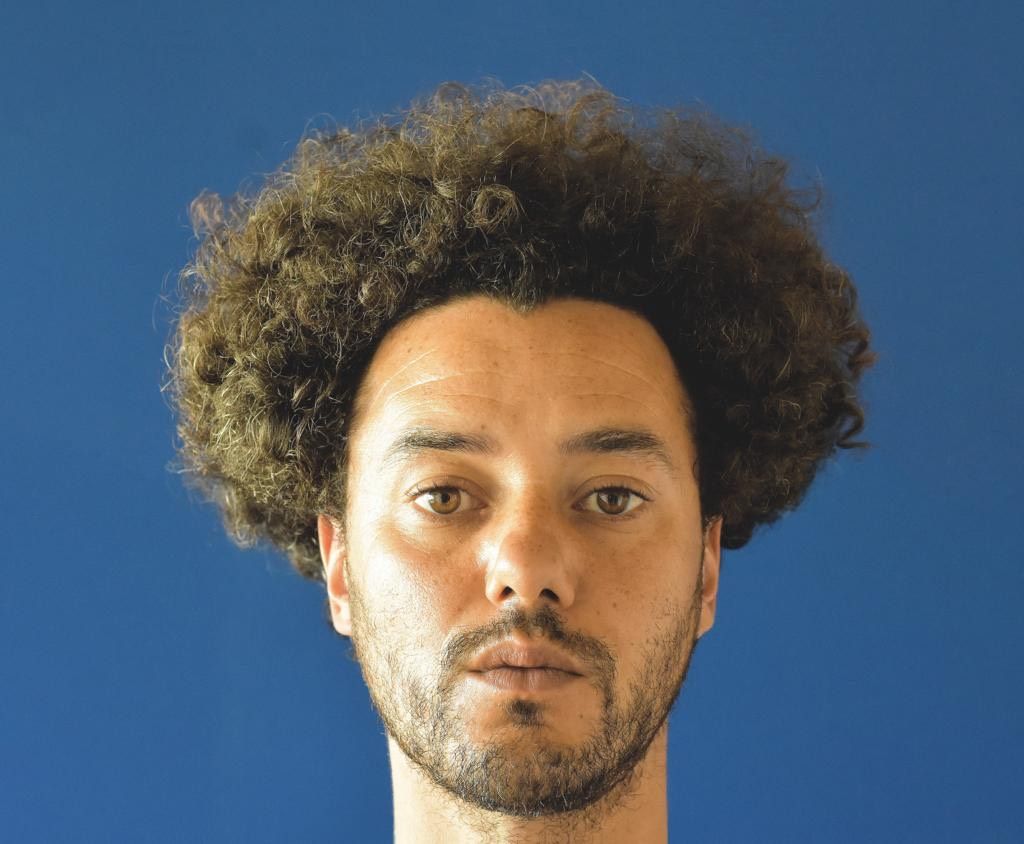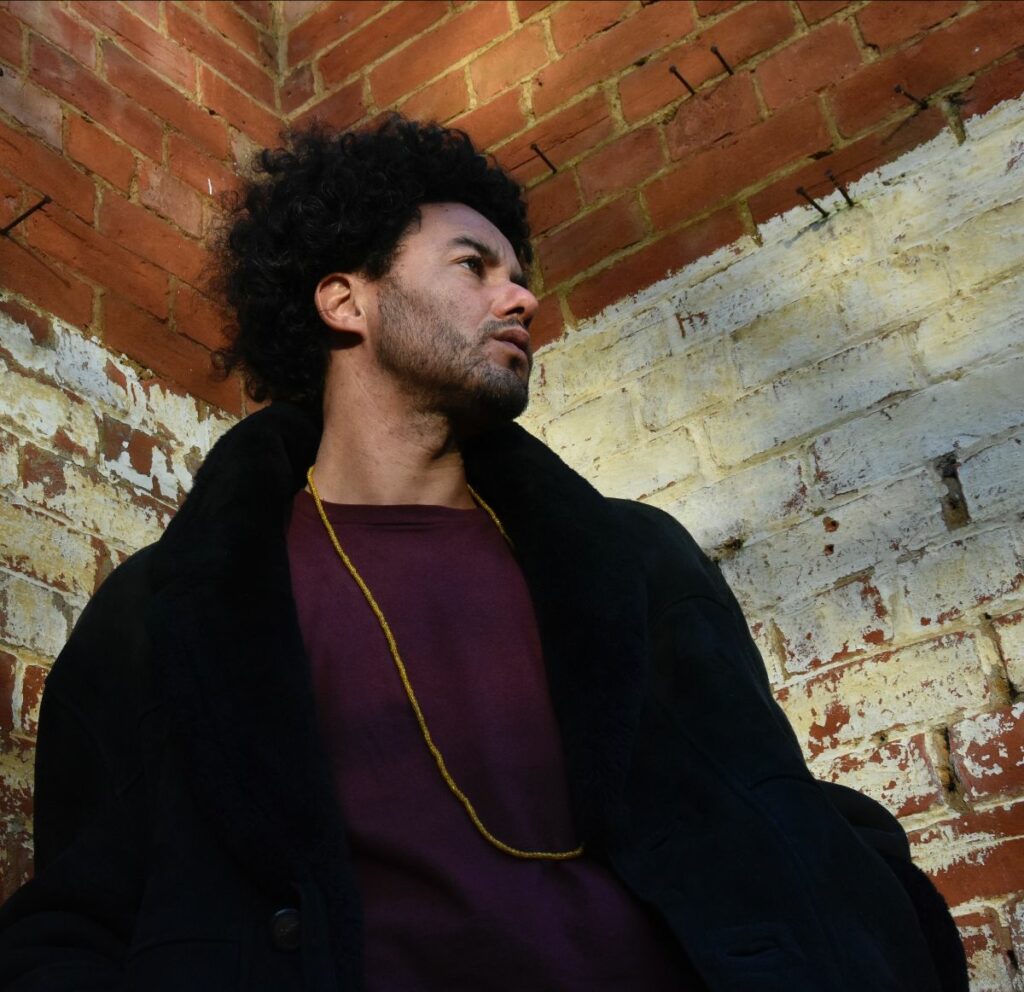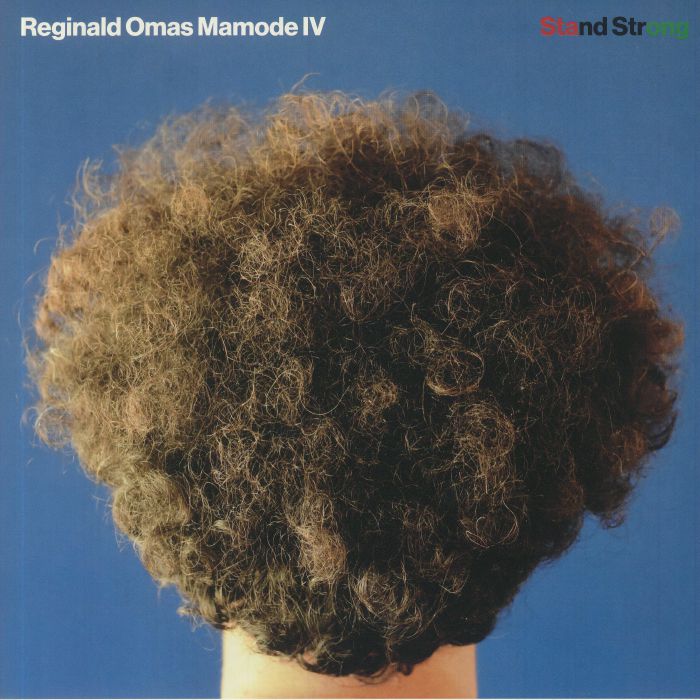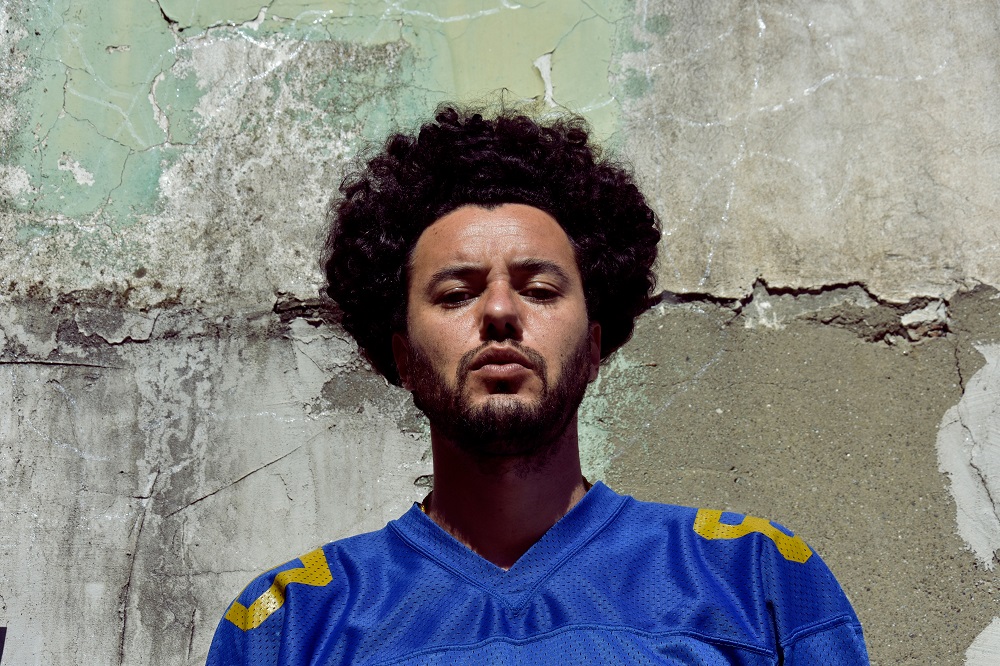Reginald Omas Mamode IV interview: “‘Wonky?… I think it’s more just natural timing.”
We meet the lord and master of London’s leftfield funk scene

The word ‘unique’ is one that’s thrown around with careless abandon in music journalism, but it’s truly the only way to describe the music of Reginald Omas Mamode IV, He’s released a string of albums that combine the intimacy of lo-fi, bedroom production with an ear for luxurious, sumptuous sounds and irresistibly low slung funk and smooth vocals.
So when we got the chance to meet the man himself, whose latest album Stand Strong album drops at the end of this week, we didn’t need to be asked twice….
A big aspect of your productions, and especially on ‘Stand Strong’, is that every element seems to ‘pop’. Every sound is resolute and clear. If more than a few parts occur at the same time, one will make way for the other, either via your use of side-chain, wonky timing, or simply the stark sonic space each part occupies. Why do you think this trait developed in your sound?
Can’t be sure to be honest with you. I’ve never used ‘side-chain’ only compression? I didn’t know what it was until very recently. As for the ‘Wonky’ I’m not sure I’d call it that, I think it’s more just natural timing. But for sure, the spaces in music are important, as important as the sounds. There is never really silence, just space, which has as much effect on the overall picture as what’s ‘there’ – a drum hit, bass note or single brush stroke.
A theme of the album is distaste for the hierarchical structures that bind us in society. Which structures do you point to in particular? You’ve spoken before about the welfare system, and how it was much better at supporting musicians in the past than it is now.

Any social structure which leans toward a particular group, ethnicity or doctrine is questionable. We see historically and in societies right now, across humanity, systems that clearly favour certain groups over others. One simple example I’d point to, would be structures that favour a group based on their lineage, like a royal blood line or a gentry class.
For a time you were based in Peckham, and are still associated heavily with the scene there. Did basing yourself in this ‘cultural melting pot’ (as it is often so affectionately called) affect your music and the themes of the album?
I was first living in Peckham almost 20 years ago, it was quite a different place. A scene didn’t exist as it does today. The area back then was crazy inspiring because of its everydayness. The community as it was, had no frills, just local people getting on with their lives. I’d say it provided us an inconspicuous home to concentrate on our art.
That place is part of me. I lived there longer than I’ve lived anywhere so I’m sure in some way it still affects my music.

What is the bell-like instrument on ‘Trippin’?
It’s a 10 inch hi-hat played all over.. closer to the centre of the cymbal it kind of sounds more chime like.. I played those drums in one take and digged that chime sound, so I kept it.
You’re singing over most of the songs on the album. Have you always sung over your productions? What kind of power does singing bring to you?
Words are powerful, language is a useful tool. I think vocals, sung or spoken, have a power to reach people in an infinite way. Then you add that to a piece of music that has potentially even more undefinable bounds of interpretation, then you are dealing with something in the realm of ‘magic’ there. It’s an exciting, crazy task to create that shit but it comes with a measure of responsibility, so there is a fine balance to strike, especially if you’ve actually got something you feel is important to say and you want it to resonate.
We’ve always wanted to ask you: do you work with quantization or a beatgrid? If so, how do you achieve such a wonky and natural sound within that?
I’ve never worked with quantise or a grid. With this LP it’s mostly all one take live instrument parts. With the drum machine there’s always kind of a grid but automatically I’ve always turned off the timing whenever I switch on the drum machine, it’s like a habit.

‘Mama Sister Daughter’ is a fascinating song, dealing with mutual respect between different generations, singing of ‘owing’ and young people’s future prospects. What are your thoughts on young people’s futures today, particularly in the UK?
That track is a love and appreciation song to womankind. My grandmother died a few days before I made it so that one is dear to me. I also at that time felt moved by the birth of my first child and the work and sacrifice his mother put into creating him.
As for the future, it doesn’t look so good at the moment. Fear seems to be the mode most are operating within at present. I think humanity’s priorities need a good looking at. If we all get together truly and maybe try love as our collective priority, we could create a good future for the kids prioritising love. A simple cultural change is probably easier to make than we’re led to believe, especially by our so-called leaders.
‘That Can Free’ talks of giving a certain kind of love and space to children. “Yet we could just be happy for free” is a standout line. Is there an anti-capitalist sentiment there?
I’ll just say it seems we have our collective priorities twisted. The structure that exists is clearly not working for the majority of people on Earth so we definitely need to be looking for change. It’s probably a societal structure we’ve never seen before.
You mention in the same song that you “conceive a place we can be”. What does this place look like?
It’s personal so conceive that place where you’d like to be. But then conceive that same place free of a structure that impinges others in order for you to be there.